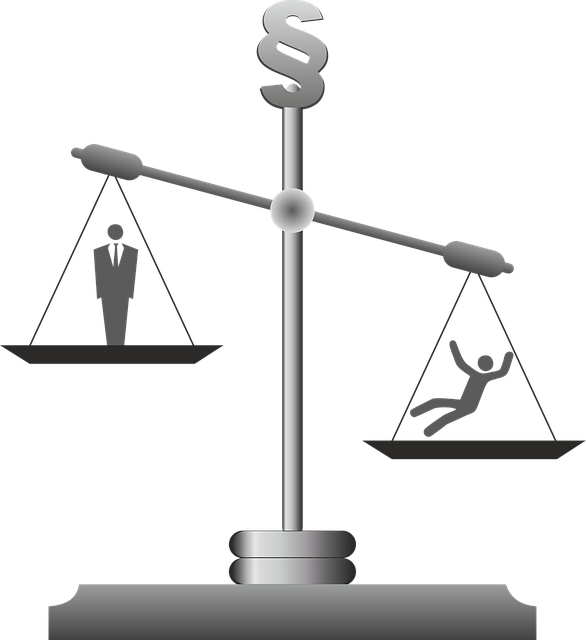Corporate Crime Investigations focus on uncovering white-collar crimes, guided by lawyers who navigate complex legalities and defend clients. The key standard is proving guilt beyond reasonable doubt, achieved through robust evidence analysis, witness cross-examination, and legal objections to instill reasonable doubt. Meticulous investigation techniques, including digital data sifting and financial transaction analysis, ensure justice while understanding business practices and community influences. These investigations uphold integrity, signal ethical standards, enhance transparency, and restore public trust.
Corporate Crime Investigations are crucial in ensuring business ethics and legal compliance. Understanding these investigations involves grasping the unique challenges of proving guilt beyond reasonable doubt in corporate settings. This article delves into key aspects, including the legal standard, evidence gathering techniques, and the profound impact of effective investigations on organizational integrity. By exploring these elements, we uncover strategies to navigate complex corporate crimes and maintain a robust business landscape.
- Understanding Corporate Crime Investigations
- Legal Standard: Proving Guilt Beyond Doubt
- Uncovering Evidence: Techniques and Strategies
- The Impact of Effective Corporate Crime Investigations
Understanding Corporate Crime Investigations

Corporate Crime Investigations are a specialized field focusing on white-collar and economic crimes, aiming to uncover and prosecute misdeeds within businesses and corporations. The primary goal is to ensure justice and deter future illegal activities by holding individuals and organizations accountable for their actions. To secure a conviction, investigators must gather compelling evidence that proves guilt beyond reasonable doubt, adhering to strict legal standards. This meticulous process involves in-depth financial analysis, document examination, and witness interviews to uncover the truth behind complex schemes.
For his clients facing such charges, effective representation is crucial. Lawyers specializing in these matters assist in navigating the intricate legal landscape, challenging evidence, and constructing robust defenses. By understanding the nuances of corporate investigations, they can guide clients through the process, ensuring their rights are protected while aiming to avoid indictment.
Legal Standard: Proving Guilt Beyond Doubt

In corporate crime investigations, one of the most stringent legal standards applied is proving guilt beyond reasonable doubt. This means that prosecutors must present compelling evidence and convincingly demonstrate that an individual or entity is guilty to a degree that leaves no reasonable alternative explanation other than their culpability. The burden of proof rests heavily on the prosecution to secure a complete dismissal of all charges only if they fail to meet this exacting standard.
A successful white collar defense strategy often hinges on challenging the sufficiency and reliability of evidence presented by prosecutors. Skilled defense attorneys employ various tactics, such as cross-examining witnesses, disputing interpretations of documents, and raising legal objections, to create reasonable doubt in the minds of jurors. Achieving winning challenging defense verdicts requires meticulous preparation, thorough investigation, and a relentless pursuit of justice within the confines of the law.
Uncovering Evidence: Techniques and Strategies

Uncovering evidence is a meticulous process that forms a crucial part of corporate crime investigations. To prove guilt beyond reasonable doubt, investigators employ advanced techniques and strategies tailored to the complexities of business environments. This includes sifting through vast amounts of digital data, analyzing financial transactions for anomalies, and examining documents for discrepancies.
Forensically sound methods, such as data recovery from deleted files and cross-referencing multiple sources, help in piecing together a comprehensive picture of wrongdoings. The involvement of philanthropic and political communities, while not direct, can influence the scope of evidence collection, especially when corporate clients become key witnesses or targets. Moreover, understanding the respective business practices and norms is vital for interpreting evidence within the context of individual client actions, ensuring justice without compromising the integrity of corporate and individual clients.
The Impact of Effective Corporate Crime Investigations

Effective corporate crime investigations play a pivotal role in upholding justice and ensuring the integrity of businesses. By meticulously navigating all stages of the investigative and enforcement process, these inquiries strive to prove guilt beyond reasonable doubt. This rigorous standard is essential for holding accountable individuals and entities engaged in white-collar offenses that often lack tangible evidence and involve complex financial schemes.
The impact extends beyond criminal penalties, as successful investigations send a powerful message to the philanthropic and political communities. It reinforces the idea that corporate misconduct will not be tolerated, encouraging robust ethical practices and transparency. Moreover, it helps restore public trust in institutions, demonstrating that efforts are being made to hold businesses and their leaders accountable for their actions.
Corporate crime investigations require a meticulous approach, combining legal rigor with advanced evidentiary techniques. By upholding the legal standard of proving guilt beyond reasonable doubt, these inquiries ensure justice and deter future misconduct. The impact is profound—from enhancing corporate governance to fostering a culture of ethical responsibility. Through effective strategies, organizations can navigate complex legal landscapes, ensuring accountability and maintaining public trust.






